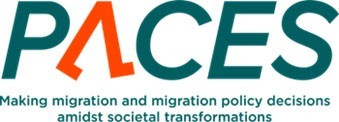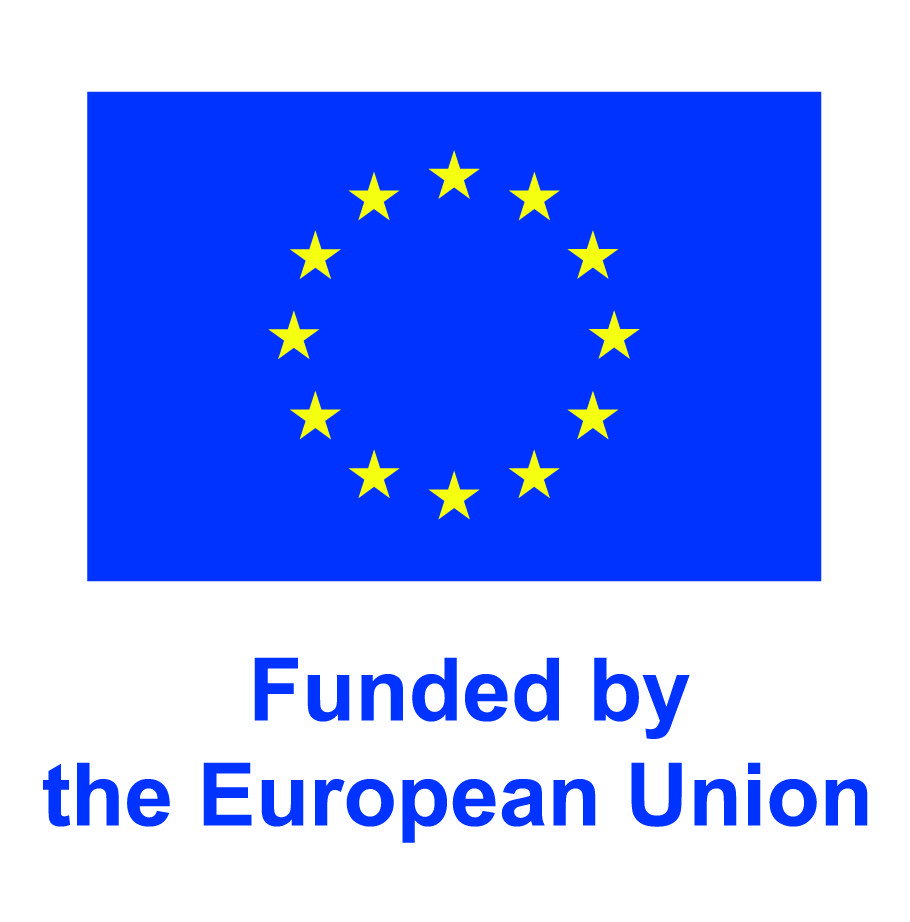

- Prognostický ústav CSPV SAV, v. v. i.
- PACES
- 101094279
- Mgr. M.A. Lucia Mýtna Kureková, PhD.
- 1.3.2023 – 1.7.2026
- Ing. Ivana Studená, PhD, Mgr. Martin Guzi, PhD, Alexandra Moran, LLM., Mgr. Jana Papcunová, PhD., Mgr. M.A. Lucia Kováčová
- the Netherlands, Belgium, Denmark, France, Slovakia, Italy, Kenya, Spain, United Kingdom, United States of America
- European Commission - Horizon Europe
- Danish Refugee Council, Mixed Migration Centre, Université Paris 13 (Sorbonne Paris North University), Universiteit Leiden, Foundation Migration Policy Institute Europe, University of Milan, Samuel Hall East Africa Limited, Universiteit van Amsterdam, Universidad de Alicante, Mareena, The University of Manchester (associated partner), International Training Center ILO (associated partner), Duke University (associated partner)
PACES offers a groundbreaking approach to studying and understanding people’s decisions to migrate and explores how this knowledge can better inform migration policies. PACES focuses on two parallel research components: the factors shaping migration decision-making and the mechanisms underpinning migration policies. Synthesizing theoretical and empirical knowledge from a broad array of academic disciplines and methodological paradigms, the project systematically investigates the interactions between migration decisions, migration policies and broader social transformation – as manifested in interconnected processes of economic, political, demographic, technological and cultural change. Based on a theoretical synthesis and qualitative and quantitative data collected in Algeria, Ethiopia, Italy, Libya, Slovakia and Spain, PACES will elaborate a heuristic model that identifies different constellations of conditions that shape decisions to stay and migrate at different stages of individual life trajectories and migrant journeys. In addition, by adopting a theories of change approach, PACES will systematically investigate, identify and track the assumptions on migration decisions used by policymakers to formulate policy designs and objectives. By exploring the evolution of EU and national labour and family migration policies, PACES reveals the extent to which current migration policies are evidence-based and areas where policies may benefit from valuable insights from migration decision-making research. By doing so, PACES seeks to challenge dominant political narratives and assumptions underlying policies and contribute to elaborating more effective models of EU migration governance that account for the uncertainties of social transformations. Supported by an interdisciplinary consortium of experienced partners, PACES engages in co-participatory research with policymakers, stakeholders, citizens and migrants to generate maximum scientific, political and social impact.
1. Identify the strengths and limitations of current migration policies and governance by analysing the theories of change underpinning European migration policies;
2. Examine the interaction between societal changes, individual life course factors and (migration) policies in shaping decisions to stay or migrate and the decision-making processes along the migration trajectory;
3. Identify how migration, and non-migration policies more broadly, can either facilitate migration or enable sustainable and desirable ‘staying’;
4. Develop ideas for possible alternative migration initiatives that account for complex processes of migration decision-making, while considering constraints in migration policymaking. Co-participatory approaches will enable the incorporation of the diverse needs of migrants and involve the perspectives of stakeholders, including employer organisations, unions and populations at origin and destination.
To reach these objectives, PACES structures the research around two parallel research components, namely 1) the factors shaping migration decision making; and 2) the theories of change underpinning migration policies.
The PACES project relies on a wide range of methodological approaches. In the first phase of the research project, we conduct a meta-analysis and develop a conceptual framework (WP2), which will be instrumental for the activities in the next work packages. WP3 will map migration policies and initiatives and conceptually and empirically summarize theories of change in the migration policy-making process. It also includes the use of "lab-in-the-field" experiments in six EU countries to measure more precisely the preferences of individuals towards migration policies. WP4 and WP5 are based on data collection through semi-structured interviews with different African migrants and home communities, on entry into the EU as well as on their migration journey, in order to map the factors that influence individual decisions regarding the migration journey. In the final work packages, among other methods, we will use a QCA analysis to determine the synergy of various factors in influencing migration decisions. In cooperation with stakeholders we will also define migration scenarios in the context of the findings of the PACES project.
- Meta-analysis and conceptual framework
- Study of non-migration policies: their role in migration decision-making
- Mapping migration policies and initiatives
- Interviews with the Nigerian migrants in Slovakia
- Migration decisions of African migrants on the move in Libya and Italy (questionnaires)
- Quantitative analyses of migration decisions en route in Europe
- Studying migration decisions over time and space longitudinally
- Sound board discussions on migration decision-making
- Building scenarios of future African migrations
- Communication, dissemination and exploitation
- Open Science Management
- Active participation at the Final conference
- Active participation at the Metropolis conference
- Study of non-migration policies: their role in migration decision-making
